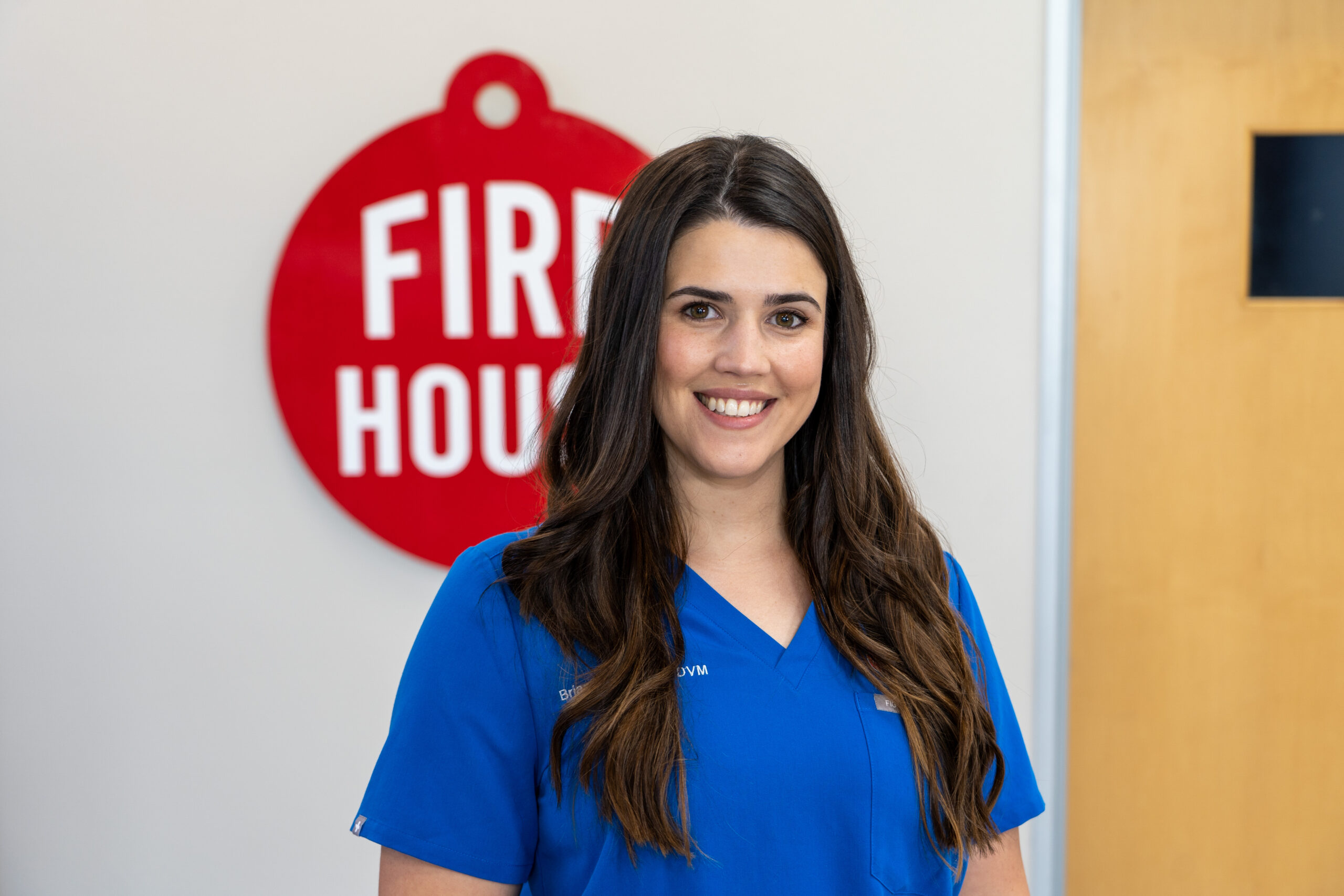2 minute read

If your dog is behaving normally, is responsive, and alert, there’s no need for immediate concern. However, call us if your dog has missed more than two meals, is lethargic, vomits, or has loose stools.
When Lucy the doodle stopped eating in May, her dog mom Audrey called the vet after two days. Lucy got medication for nausea and fluids for dehydration. It turns out, her pup needed a new type of food that better suited her stomach.
It’s alarming when your pet stops eating. A decreased appetite, known as hyporexia, can be a sign of various underlying issues – some serious and other not. Dr Brianna Demers from Firehouse Round Rock joins us this month to offer tips and advice so you’re prepared to help your pet is they stop eating.
Knowing when to be concerned and how to respond can make all the difference in your pet’s health.
Why do dogs stop eating their food?
Dogs may stop eating for many different reasons.
-They might have eaten something that they shouldn’t have or something that didn’t agree with them, leading to a temporary feeling of sickness. This could be a high-fat treat or an unusual item from the backyard. No need to worry. This kind of irritation is usually limited, and most dogs will naturally improve and resume eating within a meal or two.
-Nausea due to pain.
-Side effects of a medication.
-Stress and anxiety can also reduce your pet’s appetite.
– At the end of the day, there are many causes of decreased appetite. It’s very important to have your dog examined if their decreased appetite persists and or if other symptoms develop. And as always, if you are ever concerned about your dog, we encourage you to come on in and see us 😊
Why is my dog not eating his food but acting normal?
Great question! There’s no need for immediate concern if your dog is acting normally, is responsive, and is alert. But we encourage you to closely monitor your dog and see how the next meal goes.
And please bring your pet in if you’re concerned. Trust your instincts—if you feel something is off, don’t hesitate to reach out.
When should I worry about my dog not eating?
Call your veterinarian if your dog is not eating, becomes lethargic, or develops other symptoms like vomiting or loose stools. These signs indicate that the issue may be more serious.
How long is it okay for a dog not to eat?
Generally, dogs have a very strong food drive, but every dog is an individual. For some dogs, missing 1 meal can be very unusual and for others it may not be uncommon to miss a meal or two here and there. You know your dog best. If your dog misses a meal and you are concerned, please come on in! If the issue is not resolving, then they might need supportive care such as medication to help reduce nausea and it is a good idea to make sure nothing else is going on.
The risk of dehydration or electrolyte imbalance increases with time, and your Firehouse vet can provide guidance on the next steps.
What can you give a dog to stimulate their appetite?
Under the guidance of your veterinarian, often a bland diet can encourage your dog to eat. Veterinarians can also prescribe medications if they are needed. Some pets may benefit from medications that reduce nausea and stimulate appetite. Fluid therapy to help rehydrate and replenish electrolytes can be helpful along with bland diets.
Since every dog is different, it’s important to work with your vet to determine the best approach for your pet.
Can dogs recover from not eating?
Yes – absolutely! Decreased appetite can occur for many different reasons and with the appropriate care, dogs can recover. It’s important to identify and address the underlying cause with your veterinarian and provide supportive care and treatment in a timely fashion as needed.
Why is my dog only drinking water and not eating?
Increased thirst without eating can be due to nausea and other certain medical conditions. Monitoring your dog’s behavior and calling Firehouse is important if this continues.
Do dogs go through phases of not eating?
This can happen due to underlying food allergies and other chronic illnesses. It’s important to watch your pet’s patterns and consult your veterinarian to identify and address the issue.
Why won’t my dog eat his food but will eat human food?
If your dog rejects their food but eagerly eats human food, they might be developing finicky eating habits.
However, it’s essential to rule out any underlying medical issues that could be contributing to this behavior. Call us if you find yourself in this situation.
When should I take my dog to the vet if they’re not eating?
If you are concerned, please contact your veterinarian. Early intervention can prevent more serious health issues from developing.
Firehouse helped get Lucy back to good health. Audrey changed her diet to a low fat better suited her stomach. She’s been eating well ever since.
You know your pet best. Monitor their eating habits and call Firehouse if they’ve missed more than 2 meals. We’re happy to consult about next steps.
You can also book an appointment online if that’s easier. Firehouse is here for you 24/7.
